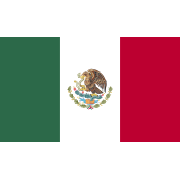Fiscal feed
New webinar was uploaded: Recorded webinar: Fiscalization Reform in the Federation of BiH
 Federation of Bosnia and Herzegovina
Author: Vukašin Santo
Federation of Bosnia and Herzegovina
Author: Vukašin Santo
On January 30, 2026, Fiscal Solutions organized a free webinar on the topic „Fiscalization Reform in the Federation of BiH“. It was held by Vukašin Santo, Legal Consultant at Fiscal Solutions. This webinar provides a clear and structured overview of the new Draft Law on Fiscalization, focusing on how the system is changing, what new obligations are being introduced, and how businesses should prepare for the upcoming reform. Read more
Subscribe to get access to the latest news, documents, webinars and educations.
Already subscriber? Login

On January 30, 2026, Fiscal Solutions organized a free webinar on the topic „Fiscalization Reform in... Read more


Recorded webinar: Fiscalization Reform in the Federation of BiH
 Federation of Bosnia and Herzegovina
Author: Vukašin Santo
Federation of Bosnia and Herzegovina
Author: Vukašin Santo
On January 30, 2026, Fiscal Solutions organized a free webinar on the topic „Fiscalization Reform in the Federation of BiH“. It was held by Vukašin Santo, Legal Consultant at Fiscal Solutions. This webinar provides a clear and structured overview of the new Draft Law on Fiscalization, focusing on how the system is changing, what new obligations are being introduced, and how businesses should prepare for the upcoming reform. Read more
Subscribe to get access to the latest news, documents, webinars and educations.
Already subscriber? Login

On January 30, 2026, Fiscal Solutions organized a free webinar on the topic „Fiscalization Reform in... Read more


Update audit rules in Italy: new automated VAT Audit platform
 Italy
Author: Nikolina Basić
Italy
Author: Nikolina Basić
Italy has launched a new digital VAT monitoring platform effective 1 January 2026, using automated cross-checks and predictive analytics to detect inconsistencies between transactions and VAT paid in near real time. Read more
Subscribe to get access to the latest news, documents, webinars and educations.
Already subscriber? Login

Italy has launched a new digital VAT monitoring platform effective 1 January 2026, using automated c... Read more


The Portuguese Finance portal launches a new "Tax Information" page in English.
 Portugal
Author: Nikolina Basić
Portugal
Author: Nikolina Basić
Portugal’s Finance Portal has launched a new English-language “Tax Information” section, replacing the former “Portuguese Tax System” page to improve transparency, accessibility, and usability for foreign citizens. The updated section offers clearer navigation and dynamic content covering key tax topics for individuals and businesses, with additional information to be added progressively as user n... Read more


Portugal’s Finance Portal has launched a new English-language “Tax Information” section, replacing t... Read more


Denmark: OIOUBL 2.1 – Schematron version 1.17.0. 1.17.0. RC
 Denmark
Author: Ivana Picajkić
Denmark
Author: Ivana Picajkić
Denmark has released OIOUBL 2.1 Schematron v1.17.0 (Release Candidate), introducing stricter tax code consistency checks, enhanced Peppol VAT code alignment, and mandatory currency validation on amount fields. The final version is expected in mid-February 2026, with mandatory implementation by 15 May 2026, giving businesses additional time to test and adapt their invoicing systems. The Danish Busi... Read more


Denmark has released OIOUBL 2.1 Schematron v1.17.0 (Release Candidate), introducing stricter tax cod... Read more


France’s September 2026 E-Invoicing Mandate in Doubt After Finance Bill Blocked
 France
Author: Vukašin Santo
France
Author: Vukašin Santo
France’s planned September 1, 2026 mandatory e-invoicing rollout is now uncertain after the 2026 Finance Bill failed to pass in December 2025, meaning none of the approved e-invoicing provisions are legally in force in France. Although Article 28 was approved by the National Assembly and the Senate, a temporary budget is extending 2025 rules into 2026, with a political compromise expected by mid-F... Read more


France’s planned September 1, 2026 mandatory e-invoicing rollout is now uncertain after the 2026 Fin... Read more


Reminder: Join our free webinar: Fiscalization Reform in the Federation of BiH
 Federation of Bosnia and Herzegovina
Author: Vukašin Santo
Federation of Bosnia and Herzegovina
Author: Vukašin Santo
Significant changes are expected in the fiscalization framework in the Federation of Bosnia and Herzegovina. This webinar provides a clear and structured overview of the new Draft Law on Fiscalization, focusing on how the system is changing, what new obligations are being introduced, and how businesses should prepare for the upcoming reform. 📅 January 29, 3 PM CET What we’ll cover Welc... Read more


Significant changes are expected in the fiscalization framework in the Federation of Bosnia and Herz... Read more


Mexico’s SAT Master Plan 2026 Signals Tougher Audits Focused on Fraudulent CFDIs
 Mexico
Author: Tara Nedeljković
Mexico
Author: Tara Nedeljković
In late January 2026, Mexico’s SAT unveiled its Plan Maestro 2026, centered on strengthening the integrity of the CFDI system through intelligent, risk-based audits, enhanced taxpayer assistance, and a strong crackdown on the purchase and sale of false invoices. Read more
Subscribe to get access to the latest news, documents, webinars and educations.
Already subscriber? Login

In late January 2026, Mexico’s SAT unveiled its Plan Maestro 2026, centered on strengthening the int... Read more


Federation of Bosnia and Herzegovina Adopts Law on Fiscalization of Transactions After Intense Parliamentary Session
 Federation of Bosnia and Herzegovina
Author: Vukašin Santo
Federation of Bosnia and Herzegovina
Author: Vukašin Santo
The House of Peoples of the Parliament of the Federation of Bosnia and Herzegovina has adopted the Law on Fiscalization of Transactions after a failed electronic vote was overturned by a successful roll-call vote. The law introduces mandatory receipt issuance, an electronic transaction recording system, supervision and penalties, aiming to curb tax evasion through real-time, technology-based repor... Read more


The House of Peoples of the Parliament of the Federation of Bosnia and Herzegovina has adopted the L... Read more


2026 Contactless Payment Limit in Turkey
 Turkey
Author: Ivana Picajkić
Turkey
Author: Ivana Picajkić
Turkey has increased the PIN-free contactless payment limit from 1,500 TL to 2,500 TL as of 15 January 2026, following guidance from the Banking Regulation and Supervision Agency (BDDK). The change reflects inflation and growing digital payment usage, while transactions above the limit still require PIN or biometric verification for security. Turkey has increased the limit for contactless payments... Read more


Turkey has increased the PIN-free contactless payment limit from 1,500 TL to 2,500 TL as of 15 Janua... Read more


New education was created: Educational videos for Sweden
 Sweden
Author: Nikolina Basić
Sweden
Author: Nikolina Basić
This video series provides a comprehensive overview of Sweden’s fiscalization framework, starting with general concepts, legal foundations, and the scope of obligated taxpayers. It then deep-dives into fiscal devices, cash registers, control units, certification, data flows, and communication with the tax authorities, explaining both hardware and software requirements. Read more
Subscribe to get access to the latest news, documents, webinars and educations.
Already subscriber? Login

This video series provides a comprehensive overview of Sweden’s fiscalization framework, starting wi... Read more


Educational videos for Sweden
 Sweden
Author: Nikolina Basić
Sweden
Author: Nikolina Basić
This video series provides a comprehensive overview of Sweden’s fiscalization framework, starting with general concepts, legal foundations, and the scope of obligated taxpayers. It then deep-dives into fiscal devices, cash registers, control units, certification, data flows, and communication with the tax authorities, explaining both hardware and software requirements. Read more
Subscribe to get access to the latest news, documents, webinars and educations.
Already subscriber? Login

This video series provides a comprehensive overview of Sweden’s fiscalization framework, starting wi... Read more


Overview of Ghana introducing Unified 20% VAT rate under the updated VAT Act
 Ghana
Author: Tara Nedeljković
Ghana
Author: Tara Nedeljković
Ghana’s Value Added Tax Act, 2025 (Act 1151) introduces a unified effective VAT rate of 20%, replacing the former 21.9% composite system and abolishing the COVID-19 levy while making NHIL and GETFund creditable as input tax. Read more
Subscribe to get access to the latest news, documents, webinars and educations.
Already subscriber? Login

Ghana’s Value Added Tax Act, 2025 (Act 1151) introduces a unified effective VAT rate of 20%, replaci... Read more


Want to see info only for certain country?
Subscribe for countryE-invoicing-KSeF to launch on schedule, no delays confirmed
 Poland
Author: Nikolina Basić
Poland
Author: Nikolina Basić
Poland has confirmed that the National e-Invoice System (KSeF) will go live as planned from 1 February 2026, with a phased rollout based on turnover thresholds, strong security measures in place, and no penalties applied during 2026, as sanctions will only start from 1 January 2027. The Ministry of Finance of Poland has confirmed that the National e-Invoice System (KSeF) will be implemented on tim... Read more


Poland has confirmed that the National e-Invoice System (KSeF) will go live as planned from 1 Februa... Read more


VAT and e-Invoicing Updates in North Macedonia
 North Macedonia
Author: Ivana Picajkić
North Macedonia
Author: Ivana Picajkić
Between late 2025 and early 2026, North Macedonia introduced key VAT and digital reforms, including limiting the low-value import VAT exemption to non-commercial parcels, extending the reduced VAT rate for residential buildings, issuing a Top-up Tax Rulebook aligned with OECD standards, and making targeted VAT clarifications. At the same time, the authorities launched pilot testing of the new e-Fa... Read more


Between late 2025 and early 2026, North Macedonia introduced key VAT and digital reforms, including... Read more


September 2026: How Hungary’s New Transaction Reporting Rules Affect Businesses?
 Hungary
Author: Tara Nedeljković
Hungary
Author: Tara Nedeljković
From 1 September 2026, Hungary will introduce mandatory receipt data reporting, requiring all receipt information to reach the tax authority, with real-time compliance automatically fulfilled by businesses using NAV-connected online or e-cash registers, while non-connected issuers must submit aggregated daily reports within three days. Read more
Subscribe to get access to the latest news, documents, webinars and educations.
Already subscriber? Login

From 1 September 2026, Hungary will introduce mandatory receipt data reporting, requiring all receip... Read more


Fiscal Requirements Portal by Fiscal Solutions

Who we are?
We are team of enthusiast with decades of experience in IT in Retail and related fiscal topics. During the years of constant involvement in hundreds of consultancies sessions, with World leading Retailers and POS software providers, we created and maintained hundreds of different documents and other related material. All this content is shaped to meet internationalization requirements in Retail world. By Fiscal Requirements Portal, we made it available to you, at any time, from any place and always up to date!


